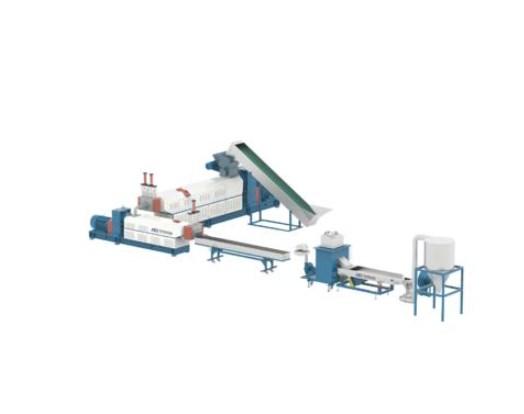Industrial granulator plays a crucial role in the modern manufacturing and recycling sectors, offering a solution to the ever-growing challenge of waste management. These machines are designed to break down large pieces of material, such as plastic, rubber, or metal, into smaller, more manageable granules. The process not only facilitates easier handling and transportation of materials but also contributes significantly to the sustainability and efficiency of industrial operations.
The functionality of an industrial granulator is rooted in its ability to process a wide range of materials with varying degrees of hardness and resilience. From the tough plastics used in automotive parts to the flexible rubber of tires, these machines are equipped with robust blades and cutting mechanisms that can efficiently reduce large chunks into granules. This size reduction is not merely a matter of convenience; it is a critical step in the recycling process, allowing materials to be reprocessed and reintegrated into the production cycle.
One of the primary benefits of industrial granulators is their contribution to environmental sustainability. By facilitating the recycling of materials, these machines help to reduce the amount of waste that ends up in landfills. Moreover, the granules produced by granulators can be used as raw material in the manufacturing of new products, thereby reducing the demand for virgin materials and the associated environmental impact of their extraction and processing.
The design and construction of industrial granulators are tailored to meet the specific needs of various industries. For instance, granulators used in the plastics industry are often equipped with knives that can handle the high melting points and chemical properties of different types of plastics. Similarly, granulators designed for metalworking must be capable of withstanding the hardness and strength of metal materials.
Safety is another critical aspect of industrial granulator design. Given the high speeds and forces involved in the shredding process, these machines are built with multiple safety features to protect operators and surrounding equipment. These features may include emergency stop buttons, safety guards to prevent accidental contact with moving parts, and interlocking systems that ensure the machine cannot operate unless all safety measures are in place.
Maintenance and durability are also key considerations in the design of industrial granulators. These machines are built to withstand the rigors of continuous operation, with components made from high-quality materials that can endure the wear and tear of the shredding process. Regular maintenance, such as the sharpening of blades and the inspection of moving parts, is essential to ensure the longevity and efficiency of the granulator.
Innovations in granulator technology continue to advance, with new models offering improved energy efficiency, reduced noise levels, and better granule consistency. These advancements not only enhance the performance of the granulator but also contribute to a more sustainable and environmentally friendly operation.
The integration of industrial granulators into the production process is a strategic decision that can lead to significant cost savings and operational improvements. By reducing waste and facilitating the recycling of materials, these machines help manufacturers minimize their environmental footprint while also improving their bottom line.
In conclusion, industrial granulators are indispensable machines in the modern industrial landscape. Their ability to process a wide range of materials into granules not only streamlines waste management but also supports the circular economy by promoting the reuse of materials. As technology continues to evolve, the capabilities and efficiency of industrial granulators will undoubtedly continue to improve, further cementing their role in sustainable manufacturing practices.

